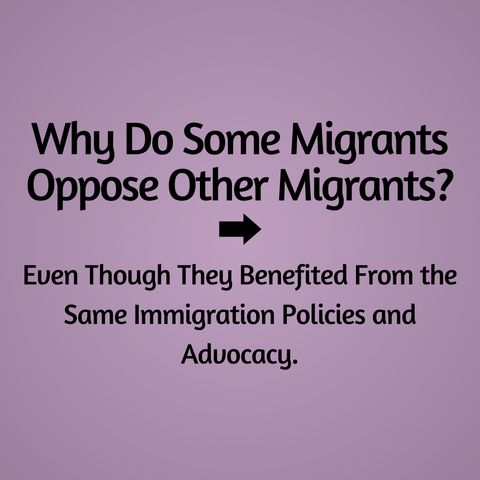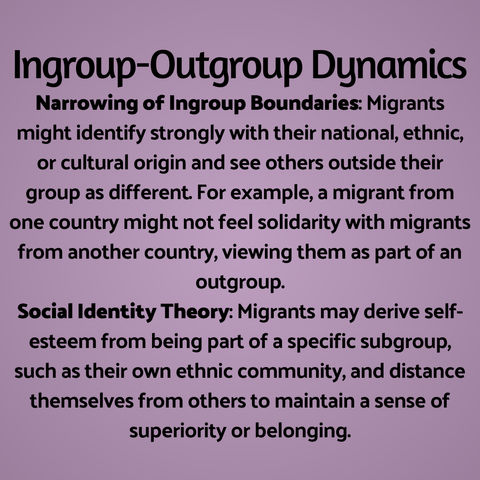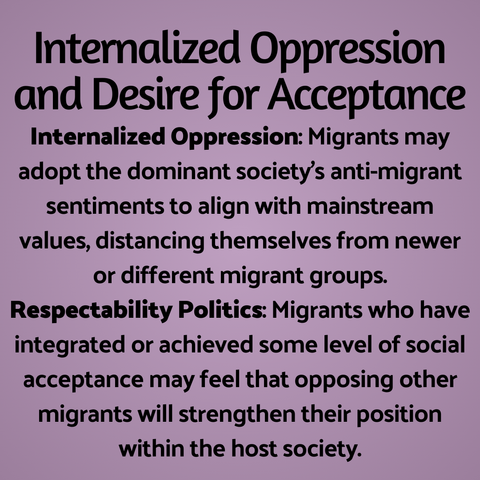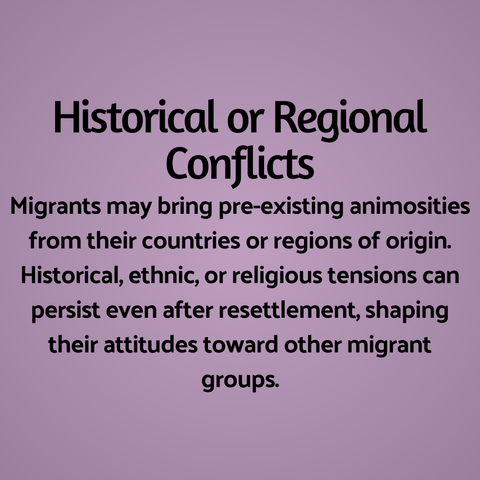Even Though They Benefited From the Same #Immigration Policies and #Advocacy.
Even Though They Benefited From the Same #Immigration Policies and #Advocacy.
#Scarcity Mentality and Resource Competition
Perceived Competition: Migrants often face economic and #SocialChallenges in host countries. New arrivals may be viewed as competitors for limited resources like jobs, housing, or #SocialServices, leading to resentment.
#ZeroSum Thinking: Some migrants might believe that the acceptance or success of new migrants could diminish their own opportunities or social standing.
Internalized #Oppression and Desire for Acceptance
Internalized Oppression: Migrants may adopt the dominant society’s AntiMigrant sentiments to align with mainstream values, distancing themselves from newer or different migrant groups.
#Respectability Politics: Migrants who have integrated or achieved some level of #SocialAcceptance may feel that opposing other migrants will strengthen their position within the host society.




